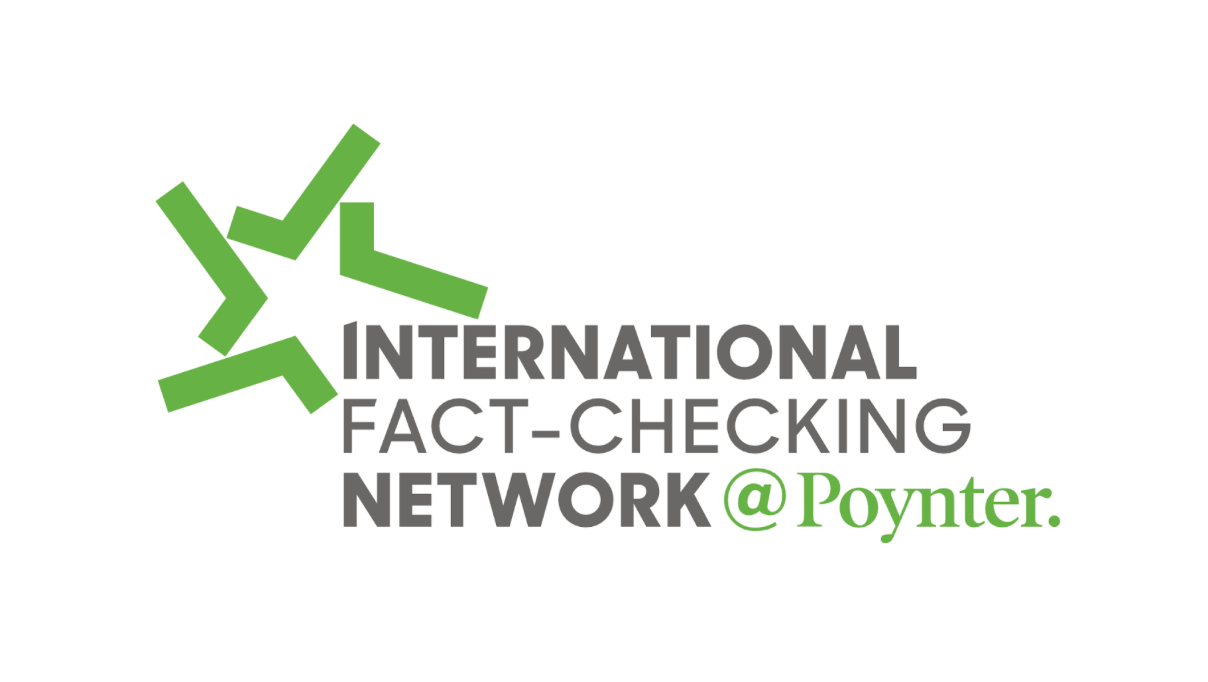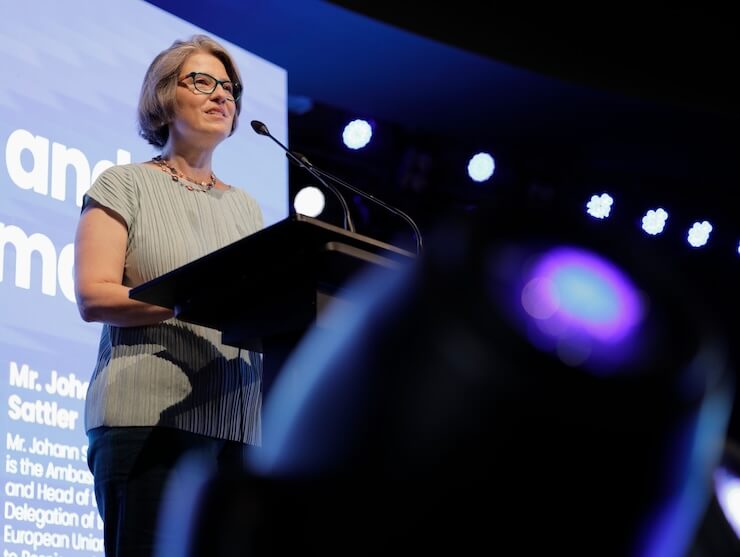Emre Kizilkaya was having dinner with his family in Istanbul on the night the Turkish military staged a coup. He noticed, first, emails about low flying F-16s in Ankara. Then, he saw friends tweeting that the traffic in Istanbul was horrible.
He thought, then, that it was an anti-terror exercise. Kizilkaya, the digital content coordinator for the daily newspaper Hurriyet, headed back to the newsroom. By midnight, it was clear a coup was unfolding. At 3:20 a.m., Kizilkaya was working on a story when armed soldiers raided the newsroom and ordered everyone to get down.
Don’t hesitate to shoot, he heard one of them say. When a crowd of hundreds carrying Turkish flags gathered in front of the building, Kizilkaya recognized some of the faces in the crowd. They’d protested here the previous September, throwing stones at Hurriyet’s building because they were unhappy with coverage.
Now, they were trying to defend the journalists inside.
That was July 16. On Monday, July 25, arrest warrants were issued for 42 journalists in Turkey. On Wednesday, July 27, another 47 warrants were issued. More than 100 news organizations were shut down that day, as well. In a country with a long history of tensions between the government and the press, this week may mark a new low point.
“Under such conditions, of course, it’s not easy to work,” Kizilkaya told Poynter via Skype. “But at the same time, I feel that we are at a crossroads of the history, so it’s also something unique, something important to work these days.”
Conditions facing the press in Turkey have been deteriorating for years. In the early 2000s, there was a relatively free environment for media thanks to reforms by the European Union and Turkey’s Justice and Development Party, Erkan Saka, an assistant professor of communication at Istanbul Bilgi University, told Poynter via email.
But now?
“It seems that the critical press is defenseless at the moment,” Saka said.
Because many news organizations are owned by people with varying business interests in Turkey, and because of broad anti-terrorism and anti-defamation laws, there’s already a history of self-censorship, said Steven Ellis, director of advocacy and communications with the International Press Institute.
In the last week, he said, the government has issued arrest warrants for those somehow linked to the Gülenist movement (blamed for the failed coup) but also for journalists with no apparent ties. Now, he said, it appears the government is using the coup as a pretense to go after anyone they want.
And now, it’s almost as if the critical press no longer exists, said Sıtkı Özcan, editor in chief of the U.S.-based Zaman Amerika.
“You can’t say anything anywhere in any column,” he said. “You can’t ask any questions to the president, you will just end up in jail. So this isn’t an issue of freedom of the press. This is an issue of the existence of the press.”
Kizilkaya, who’s also the vice chair of IPI’s national committee, thinks the situation is more nuanced than that.
“‘Existence’ is a very big word,” he said. “Even if all media outlets in Turkey are closed physically, the press will continue to exist on the internet.”
Online news has always been vital for people in Turkey, Saka said. However, a crackdown aimed at online sources isn’t impossible. News sites and social media sites have been blocked before. And pressure on internet-based news organizations might damage their already fragile business models, he said. If that happens, it’ll just be citizens on social media.
Already, there’s a growing number of people posting anonymously. And this all serves self-censorship, Saka said. It impacts not just people in Turkey, but people outside, too. Özcan worries that if he writes critically and people in Turkey retweet him, they’ll be jailed.
“They’re silencing me here, too,” he said.
So how can journalists in Turkey continue doing their job? Can they? Everyone Poynter spoke with had a different perspective.
Özcan saw just two options: Leave the profession or fall in line.
“Maybe I’m emotional, I don’t know,” he said. “But I can’t see the third option right now.”
For Kizilkaya, there’s always the possibility of being arrested.
“I’m a journalist,” he said. “I need to tell the truth. So I don’t really think about possible consequences. If I fear, then I shouldn’t do this job.”
For Ellis, the situation now facing journalists in Turkey isn’t black or white, but very gray.
“I think that there are still journalists who are willing to walk that line, but it’s going to be a day-by-day, story-by-story, tweet-by-tweet, thought-by-thought calculation as to whether this is over the line or not.”
On Friday, U.S.-based Turkish journalist Mahir Zeynalov tweeted images of journalists as they were arrested.
Nazli Ilicak, 72 years old veteran of Turkish journalism. A staunch supporter of liberal democracy. Now under arrest pic.twitter.com/UYrVRAncOK
— Mahir Zeynalov (@MahirZeynalov) July 29, 2016
Bulent Mumay. A hard-working man, who made enemies among Erdogan's inner circle for top-notch journalism. Arrested. pic.twitter.com/h8UXFAsUoR
— Mahir Zeynalov (@MahirZeynalov) July 29, 2016
Bunyamin Koseli. We used to be roommates. An excellent mind, great investigative reporter. Jailed for doing his job. pic.twitter.com/xBBWDjxzDB
— Mahir Zeynalov (@MahirZeynalov) July 29, 2016
Arda Akin. Known for columns that deeply disturbed the government. Roared when necessary, without fear. Arrested. pic.twitter.com/k7qVvOxsE0
— Mahir Zeynalov (@MahirZeynalov) July 29, 2016
Busra Erdal. Veteran court reporter. Revered & reviled, made enemies because she never stopped writing. Arrested. pic.twitter.com/oEKAp9o1tO
— Mahir Zeynalov (@MahirZeynalov) July 29, 2016
Cemal Kalyoncu. He knew nothing in his life besides reporting and editing. Arrested because he did not bow to power. pic.twitter.com/QrCthaUF9Y
— Mahir Zeynalov (@MahirZeynalov) July 29, 2016
Ali Akkus. If Turkey has few excellent newsroom editors, he is among the top. Publisher of graft cases. Arrested. pic.twitter.com/uqUQAfFGv6
— Mahir Zeynalov (@MahirZeynalov) July 29, 2016
Abdullah Kilic. Supreme irony that he made headlines for investigating 1960 military coup. Arrested on coup charges. pic.twitter.com/jJVILgjRIE
— Mahir Zeynalov (@MahirZeynalov) July 29, 2016
Ufuk Sanli. His Al Monitor columns shed light on Turkey's economy. An avid reader, excellent reporter. Arrested. pic.twitter.com/N3ZV4yAVim
— Mahir Zeynalov (@MahirZeynalov) July 29, 2016
Emre Soncan. To learn anything about the military, he was the reporter to read. Extraordinary journalist. Arrested. pic.twitter.com/DjLqpYrh2u
— Mahir Zeynalov (@MahirZeynalov) July 29, 2016
A talented journalist, unwavering editor. Published a series of court investigations. Now paying the price. Arrested pic.twitter.com/oBhCBKO2AC
— Mahir Zeynalov (@MahirZeynalov) July 29, 2016
Hasim Soylemez. A general assignment investigative reporter who wrote about almost anything. Price: Arrested. pic.twitter.com/I0nVq0yySm
— Mahir Zeynalov (@MahirZeynalov) July 29, 2016
Bayram Kaya. Made his career by digging into Turkey's economic life. Now under arrest for excellent court reporting. pic.twitter.com/BL1Pbt0Emr
— Mahir Zeynalov (@MahirZeynalov) July 29, 2016
Yakup Cetin. We know his face because he was live on TV when a story broke out. As every great reporter, arrested. pic.twitter.com/lvhOgj5JWN
— Mahir Zeynalov (@MahirZeynalov) July 29, 2016
Cihan Acar. Colleagues called him "cemetery Cihan" for exceptional coverage of funerals, from Kurds to celebrities. pic.twitter.com/oOJrPB8MWA
— Mahir Zeynalov (@MahirZeynalov) July 29, 2016
Mehmet Gundem. Hardly anyone could get away when he asked questions. An interview geek. Arrested. pic.twitter.com/o7f0bdehte
— Mahir Zeynalov (@MahirZeynalov) July 29, 2016
Sahin Alpay. I don't know anyone else who fought for Turkish democracy more than him. A champion of rights. Arrested pic.twitter.com/RXH7AselAF
— Mahir Zeynalov (@MahirZeynalov) July 29, 2016
Ahmet T. Alkan. He made his point through satire. Was a marvelous novelist. Now with head held high, going to jail. pic.twitter.com/q0B5mYRkky
— Mahir Zeynalov (@MahirZeynalov) July 29, 2016







